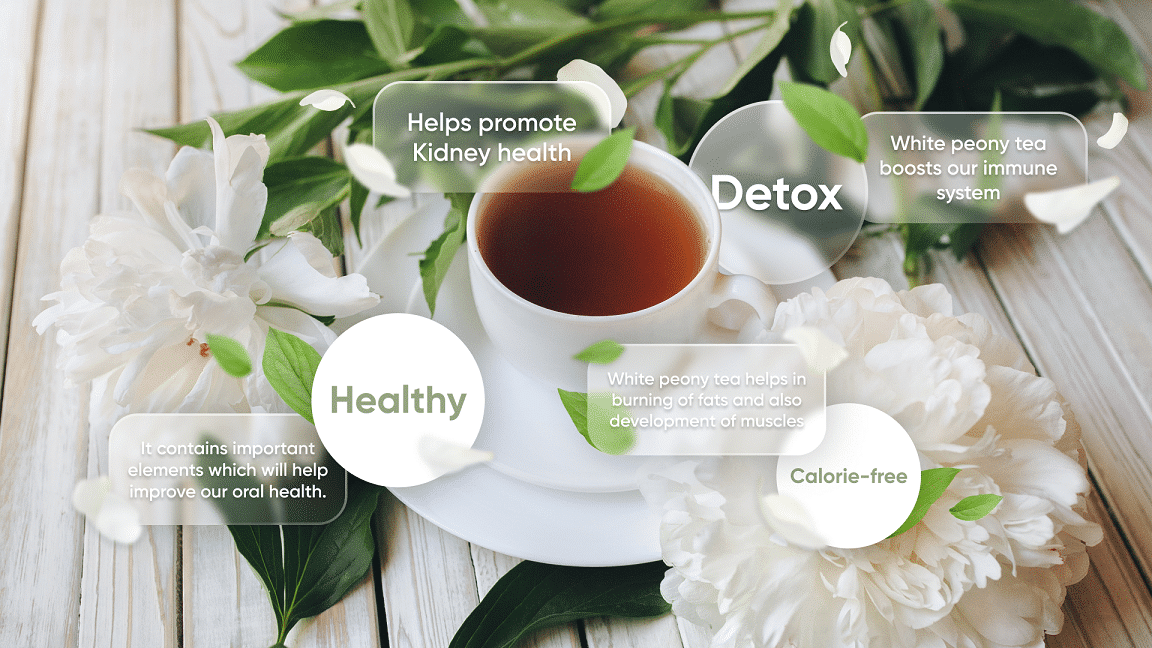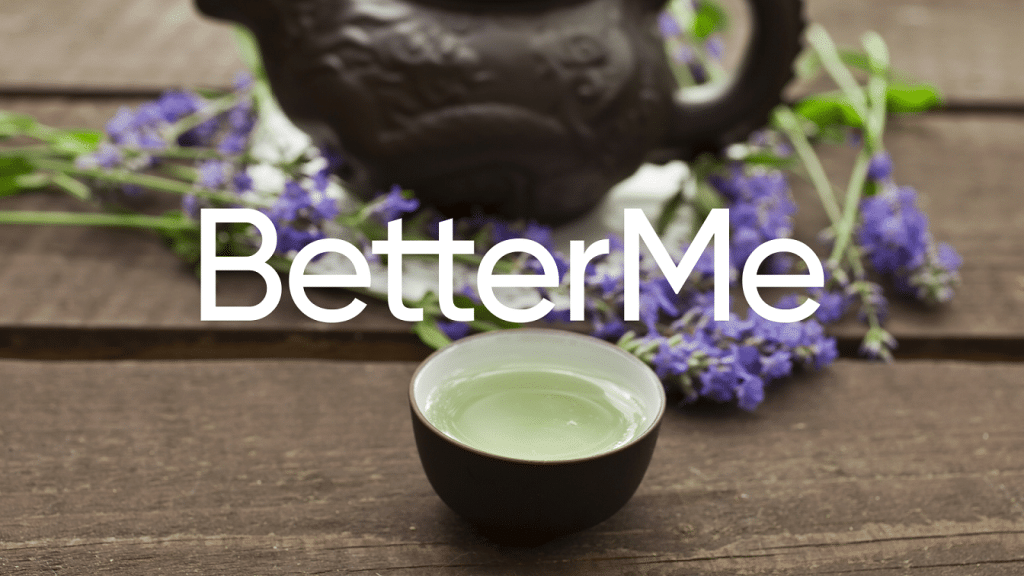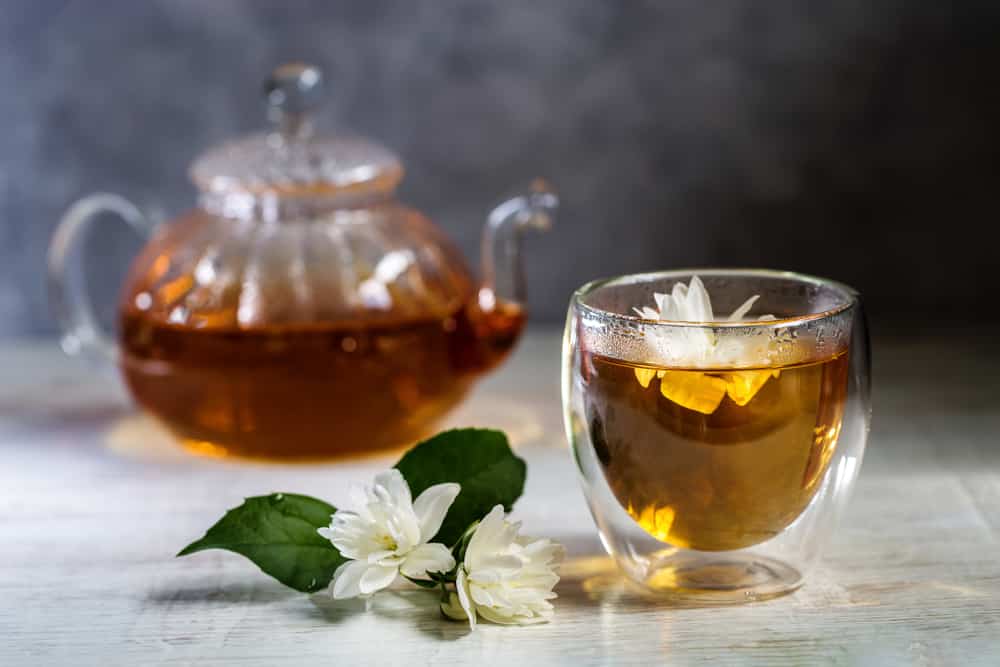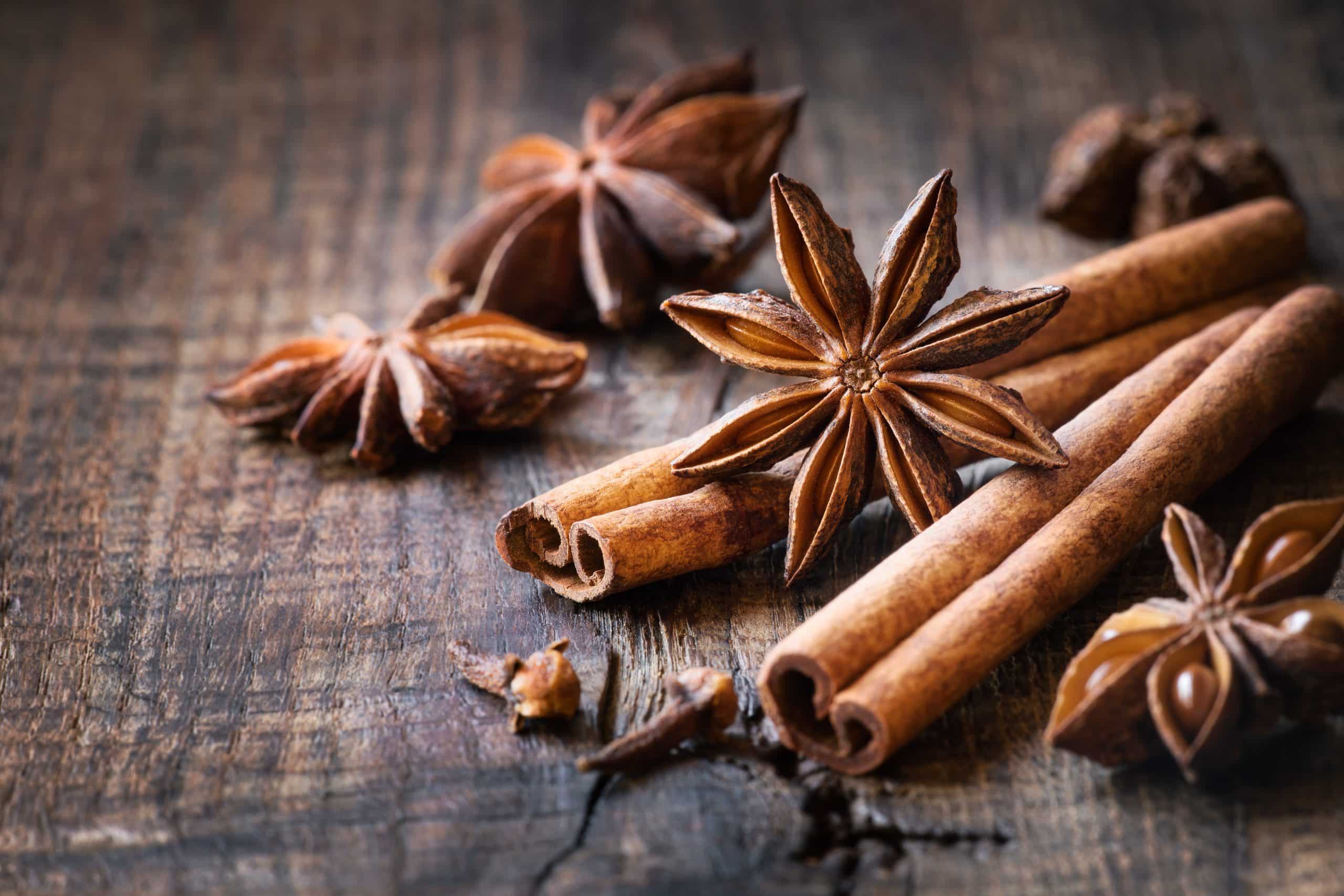White peony is a flowering plant native to the Eastern hemisphere, though it’s grown as an ornamental garden plant in the Northern United States. It has been used for over 1000 years in ancient Chinese medicine. The dried root has been traditionally used to treat many ailments, including fever, inflammation, and pain. Because some of these medical benefits have also been suggested by modern research methods, using white peony tea might be quite beneficial.
In this article, we examine the benefits and potential side effects of white peony tea. First, we’ll give an introduction to what it is. Then, we’ll discuss the evidence that shows exactly how this herb can help people with their health. Finally, we’ll provide some insight on potential risks and precautions you should take when using white peony tea for its medicinal qualities.
What Is White Peony Tea?
White peony is the common name used for Paeonia Lactiflora Pall. This plant belongs to the genus Paeonia, which consists of over 20 different species of perennial flowering plants.
White peony is native to China, Mongolia, and Siberia but grown as an ornamental garden plant in many parts of the world. It has been used for more than 1000 years in traditional Chinese medicine to treat a wide range of health conditions, including fever, pain, and inflammation (3).
The root bark is considered sweet and slightly bitter in flavor and can be consumed as tea or powder. Though research on white peony using modern medical techniques has only recently begun, it has revealed many potential health benefits of this herb.
Read More: Pomegranate White Tea Facts, Health Benefits And Side Effects
White Peony Tea Health Benefits
Most research is in early stages and the effects of white peony are far from proven. But some of the possible health benefits of drinking white peony tea regularly are as follows:
May Boost Estrogen Levels
White peony contains compounds called phytoestrogens, which are thought to have estrogen-like effects in the body. Estrogen is a key regulator of menstrual cycles, sexual development, bone strength, and other aspects of women’s health throughout their lifespan. Estrogen levels decrease with menopause, and medical treatments can be given to boost estrogen levels in women who don’t produce enough of this hormone naturally (7).
White peony supplements may help offset some symptoms of menopause, such as hot flashes and anxiety. It does this by preventing the depletion of estrogen levels in the body’s tissues. Paeoniflorin, the main compound in white peony, has been found to increase the activity of aromatase, an enzyme that turns testosterone into estrogen. The compound also reduces testosterone synthesis.
Adding white peony to your diet may help balance estrogen levels naturally, thus reducing some of the negative effects of menopause (10). Just be sure to talk to your doctor about it first.
May Prevent Cancer
Paeoniflorin is thought to have anti-cancer and antioxidant properties. These activities might help prevent cancer formation and growth by suppressing tumor growth and spreading (8).
In this study, researchers found that paeoniflorin could potentially be used as a topical treatment for skin cancers such as basal cell carcinoma (BCC) and squamous cell carcinoma (SCC). This particular research was conducted on mice with transplanted tissues, hence, more studies are still needed to be done before we know whether it will work in humans.
May Treat Diabetes
Like many other plants, white peony contains potent antioxidants that have been found to prevent oxidative damage of cells. In a study on diabetic mice, researchers observed that peony seed oil helped reduce blood sugar. It also improved blood lipids and increased antioxidant enzyme status in these animals (2).
If you tend to let yourself off the hook, raise the white flag when things get tougher than you expected, send yourself on an unconscious binge-eating trip – BetterMe app is here to help you leave all of these sabotaging habits in the past!
May Suppress The Inflammatory Response
White peony contains compounds called saponins, which have been shown to suppress inflammation and autoimmune diseases in some studies. For example, one study found that treatment with a special saponin extract from a different plant reduced symptoms of psoriasis (15). Saponins are also thought to be responsible for the anti-inflammatory effects of white peony. If you’re trying white peony tea as a complementary treatment for an inflammatory condition such as arthritis, there’s some evidence from animals that it may help reduce your symptoms (12).
However, white peony tea could suppress the immune system, so you should approach it with caution if you have an autoimmune disease. In addition to psoriasis and arthritis, there is evidence that this herb may help treat skin hyperpigmentation disorders (13). Always talk to your doctor before trying any herbal remedy or treatment.
May Treat Anxiety And Depression
Paeoniflorin, one of the main compounds found in white peony, seems to have stress-relieving effects. A study on PMS anxiety in rats found that white peony extract relieved anxiety by altering the expression of estrogen receptors, serotonin transporters, and another enzyme involved in serotonin production (6).
May Relieve Pain
White peony extract has been shown to reduce pain. In one study, researchers found that paeoniflorin had analgesic (pain-reducing) properties that were comparable or stronger than those of acetaminophen, a pain reliever drug. In another study on mice with induced arthritis, the saponins in white peony significantly reduced inflammatory markers (9).
Read More: White Tea Facts, Health Benefits And Side Effects
May Improve Blood Flow
Paeoniflorin, the saponin contained in white peony, has been found to increase blood flow. Researchers have hypothesized that this is because of its inhibitory effects on platelet aggregation (4). Some studies have shown that the active compounds in white peony, including paeoniflorin, can increase blood flow by inhibiting platelet aggregation and blood coagulation (clotting) (14).
May Decrease Hyperpigmentation
White peony extract has been used in traditional Chinese medicine for hundreds of years to help brighten the skin. This is due to some of the compounds naturally present, such as chalcone and gallic acid. A study on reconstructed skin suggests that white peony may be an effective treatment for hyperpigmentation-related — a darkening of patches of skin — conditions such as melasma and vitiligo. However, more research is needed before it can be recommended for this purpose in humans (13).
May Reduce Inflammation
White peony is rich in compounds that have anti-inflammatory effects. Researchers have identified two specific components, paeoniflorin and albiflorin, which decrease inflammation by blocking the production of inflammatory proteins. These saponins also block enzymes called COX-2 and 5-lipoxygenase (5-LO), both of which are involved in arachidonic acid metabolism (the creation of inflammation) (12).
The anti-inflammatory properties of white peony might make it an effective adjunct treatment for conditions like arthritis, psoriasis, lupus, scleroderma, ulcerative colitis, hemorrhagic cystitis, and inflamed skin lesions caused by certain types of cancer (12).
May Improve Digestion And Protect The Stomach
White peony contains compounds that may protect the stomach lining from ulcers and other forms of injury. This anti-ulcer effect may help alleviate certain digestive conditions such as heartburn or GERD (gastroesophageal reflux disease).
White Peony Tea Side Effects
Although white peony is generally considered safe for most people, drinking large amounts might have some negative consequences. Here are a few of them:
Causes Diarrhea Or Nausea
If you drink too much of this tea on an empty stomach, you may get temporary diarrhea or nausea (5). This usually goes away if you eat something. If your symptoms persist for more than a day, it’s important to contact a healthcare provider immediately.
BetterMe app is a foolproof way to go from zero to a weight loss hero in a safe and sustainable way! What are you waiting for? Start transforming your body now!
Interacts With Cancer Drugs
White peony contains many components that are thought to have antioxidant effects, including several saponins, prenylflavonoids, and phenolic acids. Theoretically, these antioxidants could interfere with the effectiveness of medical treatments that rely on oxidative damage like radiation or chemotherapy. As a result, it’s possible that using white peony alongside these drugs may decrease their effectiveness. However, this is only a theoretical concern. There’s no direct evidence that this tea interferes with chemotherapy or other cancer treatments. Talk to your doctor before trying white peony or any other herbal remedy as an adjunct to your treatments.
Causes Intravascular Hemolysis
Intravascular hemolysis (also referred to as extravascular hemolysis) occurs when red blood cells are destroyed within veins or arteries. This leads to problems like anemia, jaundice, and dark urine. Although rare, white peony may have side effects similar to those of garlic (another plant with anticoagulant properties). If you consume large amounts of this herb over a long period, it could cause intravascular hemolysis in people with blood clotting disorders (10). To be safe, you should avoid using white peony if you have any kind of blood clotting disorder.
Cautions & Side Effects
People who are pregnant or breastfeeding should use white peony only after consulting with a healthcare provider. The leaves and roots of the plant also contain compounds called pyrrolizidine alkaloids (PAs) that may be harmful to infants, especially if taken by mouth (10).
Although PA levels in white peonies are significantly lower than in some related species like coltsfoot (Tussilago farfara), daily use of this herb could result in accumulation over time, which can cause liver damage over time (10).
The Bottom Line
More research is needed on white peony before its benefits can be definitively proven. However, studies so far have offered promising findings in treating cancer, inflammation, pain, depression, anxiety, blood flow disorders, hyperpigmentation, and digestion issues.
White peony is generally considered safe, although daily consumption can cause liver damage, and there’s always a chance of an allergic reaction. As long as you take these considerations into account, white peony tea benefits are well worth it. Always talk to your doctor before trying any herbal tea or supplement, especially if you are being treated for a medical condition, are on any medications, or are pregnant or breastfeeding.
Get your personalized
meal plan!
DISCLAIMER:
This article is intended for general informational purposes only and does not address individual circumstances. It is not a substitute for professional advice or help and should not be relied on to make decisions of any kind. Any action you take upon the information presented in this article is strictly at your own risk and responsibility!
SOURCES:
- A botanical dietary supplement from white peony and licorice attenuates nonalcoholic fatty liver disease by modulating microbiota and reducing inflammation (2021, pubmed.gov)
- Anti-diabetic activity of peony seed oil, a new resource food in STZ-induced diabetic mice (2015, pubmed.gov)
- Anti-Inflammatory and Immunomodulatory Effects of Paeonia Lactiflora Pall., a Traditional Chinese Herbal Medicine (2011, pubmed.gov)
- A Review of Antiplatelet Activity of Traditional Medicinal Herbs on Integrative Medicine Studies (2019, hindawi.com)
- Assessment Report on Paeonia lactiflora Pallas, Radix (Paeoniae Radix Alba) (2016, europa.edu)
- Effects of Paeonia lactiflora Extract on Estrogen Receptor b, TPH2, and SERT in Rats with PMS Anxiety (2020, nih.gov)
- Estrogen’s Effects on The Female Body (n.d., hopkinsmedicine.com)
- Paeoniflorin: A monoterpene glucose from plants of Paeoniaceae family with diverse anticancer activities (2019, wiley.com)
- Paeoniflorin Attenuates Inflammatory Pain by Inhibiting Microglial Activation and Akt-NF-kB Signaling in the Central Nervous System (2018, karger.com)
- Peony (2020, webmd.com)
- Prenylflavonoids: a new class of non-steroidal phytoestrogen (Part 1). Isolation of 8-isopentenyl naringenin and an initial study on its structure-activity relationship (1998, pubmed.gov)
- The Regulatory Effects of Paeoniflorin and Its Derivative Paeoniflorin-6-O-Benzene Sulfonate CP-25 on Inflammation and Immune Diseases (2019, frontiersin.org)
- The skin-depigmenting potential of Paeonia lactiflora root extract and paeoniflorin: in vitro evaluation using reconstructed pigmented human epidermis (2016, wily.com)
- Thrombosis recanalization by paeoniflorin through the upregulation of urokinase-type plasminogen activator via the MAPK signaling pathway (2016, nih.gov)
- TREATMENT OF PSORIASIS WITH SARSAPARILLA COMPOUND (1944, jamanetwork.com)
















